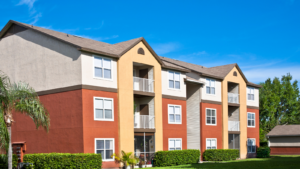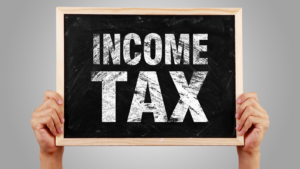Watch: My weekly video update – session, taxes and natural gas
FRIENDS AND NEIGHBORS,
We are about to hit some milestones in this 60-day legislative session, which makes it a good time to explain what happens to legislation from here.
Next Wednesday, Jan. 31, is policy-committee cutoff. This is the deadline for the Senate’s 12 policy committees to take action on bills introduced here in the Senate. Legislation not moved forward by then is considered “dead.” (The House has the same deadline for its bills.)
The bills passed by policy committees that do not have a cost associated with them will wait to be pulled to the Senate floor for a debate and vote.
Those with a cost to them (which is estimated in what’s called a “fiscal note”) will go, depending on the topic, to one of the Senate’s two budget committees: Ways & Means, which handles the operating and capital budgets, or Transportation, which handles the transportation budget. If passed out of either committee, these bills also begin the wait for a floor vote.
Not all bills that make it out of committee survive to reach the floor. That decision belongs to the majority party. Bills passed by the Senate are sent to the House, where they begin start the committee process over again – and vice versa in the Senate committees for bills passed by the House.
At each step, the number of bills moving forward decreases. The majority Democrats always allow more of their own bills to make it to the governor’s desk than those sponsored by Republicans. This means many good Republican bills will die somewhere along the way, and sometimes it is simply because they are from Republicans.
The bills that pass out of both chambers are sent to the governor for what more often than not is a ceremonial signature – although some bills are written to become law as soon as they are signed. Otherwise they become law at a later date, such as 90 days after the session ends, or even the following calendar year.
The deadlines for acting on legislation come up much sooner in even-numbered years when the session is limited to 60 days instead of 105 like last year’s. It’s like running a marathon in the time it takes to run a sprint.
Even with the rapid pace of this session, I welcome you to contact my office if you have a question or concern. You can email me at john.braun@leg.wa.gov.
Regards,
John Braun
Watch: Recovery Washington presser
The opioid crisis in Washington is out of control. On top of the role fentanyl is playing in the crime rate, and homelessness, there’s the shocking death rate from overdoses. Legislators on both sides of the aisle have bills this session focusing on this issue. Sen. Chris Gildon, R-Puyallup, Sen. Lynda Wilson, R-Vancouver, and I held a news conference this week to talk about four bills we are sponsoring.
You can’t make housing more affordable by making it more expensive
Two tax bills proposed by majority Democrats this session could have a devastating impact on the availability of affordable housing.
I’ve written about Senate Bill 5770 before. This is the bill that triples the allowable growth factor of state and local property taxes, moving the annual cap to 3% from the 1% that has been in place since 2001. If passed, state or local government could increase your taxes by up to 3% a year without voter approval. As introduced, the bill would cost taxpayers $12 billion over 10 years, and it would compound from there.
You also need to know about a bill over in the House that would raise the real estate excise tax (REET), which is the tax paid on the sale of a piece of property. House Bill 2276 would increase the REET on properties valued at over $3 million. The bill is expected to raise $3 billion every two years and is being sold as a tax on only the very wealthy.
While on the surface a REET increase might seem to have no effect on rent prices, the opposite is true. Multi-family properties such as apartments, and other rental units such as senior living centers, would have to pass the increased tax along in the form of higher rent. It will make those rentals more expensive. This is the opposite of what we should do to increase the supply of housing people can afford.
Some might argue for a rent-control law to cap the amount a property owner can ask from tenants. But if owners can’t seek additional revenue to pay the taxes, or other expenses like utilities and maintenance, they may have to sell the property, which puts the stability of that housing at risk. And it could put more families on the street. High rent and scarce housing are both serious problems faced by Washingtonians, but we must not push fixes that would make the situation worse.
Banning a personal income tax in Washington
Initiative 2111 was certified Wednesday. It would ban the adoption of a personal income tax in Washington. The people of Washington have overwhelmingly rejected an income tax 11 times.
Our state constitution already does not allow a graduated income tax, meaning an income tax that would tax people at different rates based on income level. Even so, Democrats continue to fight for a statewide income tax, seeing small victories (like their tax on capital-gains income – keep reading for more on that) as a path toward a statewide income tax like Oregon’s.
I hope this initiative is given a committee hearing. If I am given the opportunity to vote, I will strongly support a ban on income taxes in Washington. We must respect the will of the people.
Repealing the capital gains income tax
Another of the initiatives to the Legislature that has been certified by the Secretary of State is Initiative 2109, which would repeal the capital-gains income tax put in place in 2021.
Democrats are fighting hard against this initiative. Fuse Washington, a progressive political group, claims I-2109 would “steal billions of dollars in funding from early learning and education to give a tax cut to Washington’s wealthiest to 0.2%.”
Despite a ruling by the liberal Washington Supreme Court that says otherwise, the capital gains income tax is just that — an income tax. It is not an excise tax, as the Democrats who created it also claim. All 49 other states consider it an income tax. The IRS considers it an income tax. And a graduated income tax like the capital gains tax is unconstitutional. The Washington Constitution is clear on that.
In emails uncovered through a public-records request by the Washington Policy Center, legislative Democrat leaders have stated clearly that their capital-gains tax is just the first step toward a full-blown, statewide income tax.
Before the ink was even dry on the capital-gains tax bill, Democrats were slipping into the budget an expansion of the tax…just as we predicted they would. When Democrats do expand the tax, it will target small business owners, family farms, entrepreneurs, and restaurant owners.
For now, Republicans are asking that I-2109, I-2111 and the other four certified initiatives to the Legislature receive public hearings. This is in line with the state constitution, which clearly states initiatives are to take precedence over all other legislation except budget-related bills. The speaker of the house recently claimed that of the 20-plus initiatives certified to the Legislature since the 1990s, only about half received hearings — as if Democrats’ past ignorance of the constitution is a reason for doing it again now. That is not a justification to avoid giving these initiatives a hearing. It’s an excuse.
You may contact majority Democrats to push for a hearing on these and the other initiatives. As with Initiative 2111, I will vote to approve this legislation, if given the opportunity. If the Democratic majority refuses to hear the bills, I will vote for them when they appear on November’s ballot.
My bills that will be heard in committee this week
Senate Bill 5850: Reduce chronic absenteeism in K-12 public schools.
Senate Bill 6033: Allows the open carry of firearms for ceremonial purposes on the Washington State Capitol Campus.
Senate Bill 6280: Provides for veteran parking privileges.
Senate Bill 6285: Ensures the timely and balanced use of impact fees to help reduce costs factored into building a home.
Other action on my bills this coming week
The following bills of mine are expected to be voted out of committee this week, which means they would go to the Senate Rules Committee for consideration. It is from this committee that they could be pulled to the Senate floor for a vote.
Senate Bill 5099: Creates the tribal opioid prevention and treatment account (see story about Recovery Washington).
Senate Bill 6029: Establishes criteria for detached accessory dwelling units outside urban growth areas. This is intended to assist with affordable housing.
Senate Bill 6031: Makes student transportation funding more flexible so it can include vehicles of various types, such as vans, that would meet students’ needs.
Senate Bill 6032: Fosters community engagement with law enforcement at religious schools.
Important News Clips
- Bill looks to block dam breaching on lower Snake system (The Lewiston Tribune)
- Effort to place WA’s capital gains tax on November ballot advances (The Seattle Times)
- Washington House passes PSE natural gas ban days after cold snap hits energy grid (The Center Square)
- ‘Verge of collapse’: Washington public defenders swamped by cases (Washington State Standard)
- COLUMN: Democrats try to bankrupt gun shops with ‘insurmountable’ fees (Jason Rantz/MyNorthwest)
- Bill to ban natural gas revived, passes in Washington House (MyNorthwest)
- Proposed law would make hundreds of Washington prisoners eligible for resentencing if they are serving time for juvenile records (The Spokesman-Review)
- ‘Serial killers voting’: Argument over prisoner rights bill gets intense in Olympia (MyNorthwest)
- Washington Senate again passes bill to require ‘inclusive’ curriculum (The Chronicle)
- COLUMN: Democrats change name ‘sex offender’ to protect rapists’ feelings (Jason Rantz/MyNorthwest)
- Green Hill School employee arrested for allegedly bringing controlled substances in facility (The Chronicle)
- COLUMN: The complicated ethics of violence-prevention programs (Alex Fryer/The Seattle Times)
- EDITORIAL: Regardless of its ranking, Washington can improve (The Columbian)















